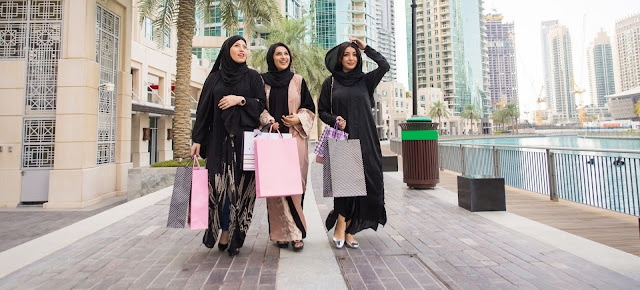Dubai, the dazzling city of the United Arab Emirates (UAE), is renowned for its modernity, luxury, and cultural diversity. As you plan your visit to this vibrant metropolis, it's essential to understand the dress code requirements to ensure a respectful and enjoyable experience. From the glitzy skyscrapers to the historic sites, let's delve into the dress code expectations that Dubai holds for its residents and visitors alike.
Are there Dress Code Requirements for Dubai?
When it comes to dress code requirements in Dubai, the answer is yes. While Dubai is undoubtedly a cosmopolitan city, it's important to note that it follows a more conservative dress code compared to Western countries. The dress code is influenced by Islamic traditions and cultural norms, which emphasize modesty and respect.
Dress Code for Public Places
When exploring public places, such as malls, markets, and public transportation, both locals and visitors are expected to adhere to a modest dress code. For men, this typically involves wearing full-length trousers and shirts with sleeves. Women are encouraged to wear dresses, skirts, or pants that cover the knees, along with tops that cover the shoulders and avoid low necklines.
Dress Code for Religious Sites
Dubai is home to various stunning religious sites, such as mosques. When visiting these places, it's crucial to dress even more modestly out of respect for the religious significance. Both men and women should wear clothing that covers their arms and legs. Women are also required to cover their heads with a scarf, known as a hijab, while entering mosques.
Beach and Pool Attire
Dubai's beaches and luxurious pool areas offer a more relaxed environment in terms of dress code. Swimsuits are acceptable in these areas, but it's recommended to wear a cover-up or a sarong when walking to and from the beach or pool. It's important to remember that the dress code should still maintain a level of modesty and respect for the local culture.
Evening and Nightlife
As the sun sets and Dubai's nightlife comes to life, there's more flexibility in dress code requirements. Many restaurants, clubs, and bars have a smart-casual dress code, allowing for more stylish and fashionable attire. However, it's advised to avoid overly revealing or provocative clothing, as it may still be considered inappropriate.
Traditional Attire
While not mandatory, embracing traditional Emirati attire can be a wonderful way to show cultural appreciation. For men, the traditional attire is called a "kandura" or "dishdasha," which is a long white robe. Women often wear elegant "abayas," which are black robes that cover their clothing. By wearing these traditional garments, you can gain a deeper understanding of local customs and traditions.
FAQs about Dress Code Requirements in Dubai
Q: Can tourists wear shorts in Dubai?
A: Yes, tourists can wear shorts in Dubai, especially in more casual settings like the beach or resorts. However, it's advisable to wear longer attire when visiting malls and other public places.
Q: Are there specific rules for footwear in Dubai?
A: While there are no strict rules for footwear, it's recommended to wear closed shoes in more formal settings. For men, flip-flops are generally acceptable in casual environments.
Q: Can women wear makeup and jewelry in public?
A: Yes, women are allowed to wear makeup and jewelry in public. However, it's best to avoid excessive or flashy accessories out of respect for the local culture.
Q: Are there dress code requirements for men's facial hair?
A: While there are no official dress code requirements for facial hair, many locals prefer to have well-groomed facial hair as part of their appearance.
Q: Can non-Muslims wear traditional Emirati clothing?
A: Yes, non-Muslims are welcome to wear traditional Emirati clothing, and it's often seen as a sign of respect for the local culture and traditions.
Q: What should I wear during Ramadan in Dubai?
A: During the holy month of Ramadan, it's especially important to dress modestly as a sign of respect for the fasting period. Avoid revealing clothing during this time.
Conclusion
Navigating dress code requirements in Dubai is a crucial aspect of experiencing the city's unique blend of modernity and tradition. By understanding and respecting the local cultural norms, you can make the most of your visit to this dazzling destination. Whether you're exploring the city's iconic landmarks, relaxing on its beautiful beaches, or enjoying its vibrant nightlife, dressing appropriately will enhance your experience and show your appreciation for Dubai's rich heritage.

